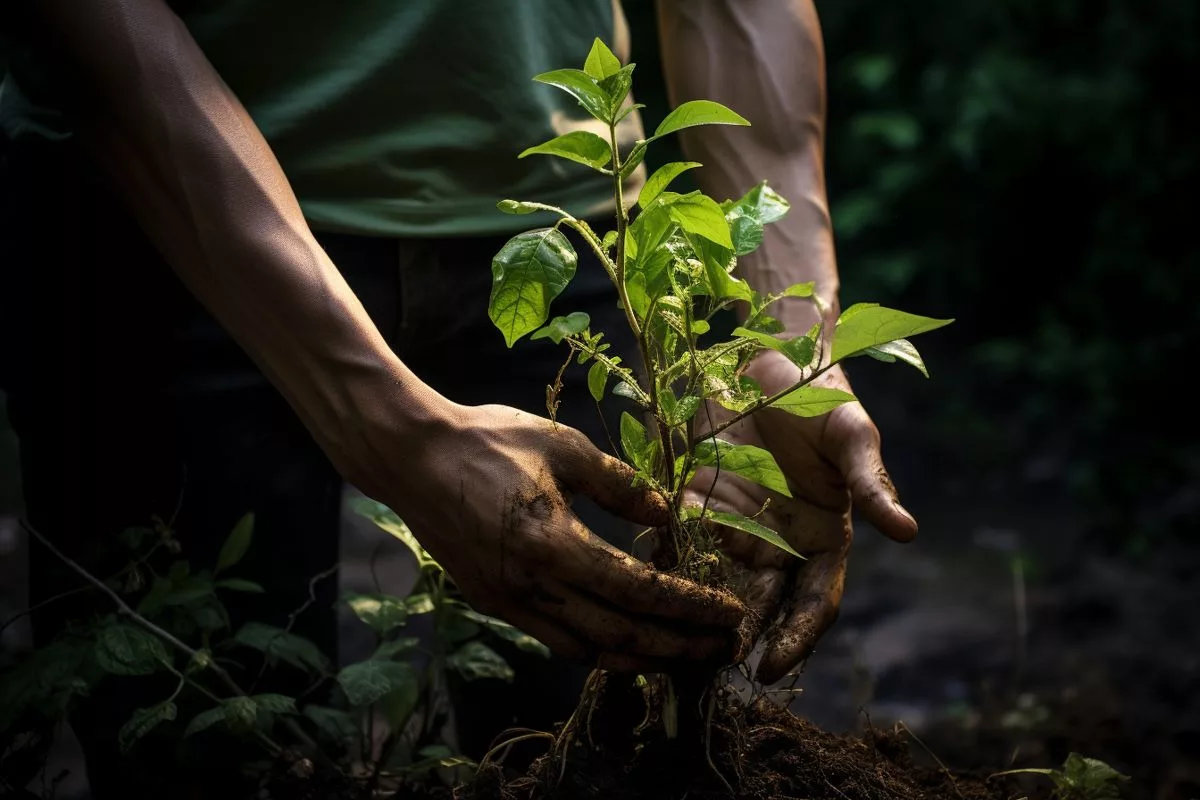The Gauteng Working for Water Programme is a five-year initiative aimed at eliminating invasive alien plants in the community, which pose a threat to biodiversity, water resources, and sustainable livelihoods. The project is valued at R2.67 billion and is expected to generate 38,839 job opportunities annually, mainly in rural regions. By removing these destructive plants, the programme is taking a critical step towards safeguarding the environment while creating employment opportunities.
What is the Gauteng Working for Water Programme?
The Gauteng Working for Water Environmental Programmes aims to eliminate destructive alien plants within the community and generate job opportunities, mainly focusing on rural regions. Invasive alien plants present a colossal hazard to biodiversity, ecosystem services, water resources, and sustainable livelihoods in South Africa. The initiative pledges R2.67 billion to oversee the clearing of hectares and create 194,195 employment opportunities over a five-year span. The Working for Water Programme is a critical stride towards safeguarding and rejuvenating the environment while simultaneously creating a multitude of employment opportunities.
Unleashing the Gauteng Working for Water Environmental Programmes
The Gauteng Province has embarked on a five-year endeavour, the Gauteng Working for Water (WFW) Environmental Programmes, which is centred on the elimination of destructive alien plants within the community. The plan, championed by the Minister of Forestry, Fisheries, and the Environment, Ms. Barbara Creecy, has an estimated value of R2.67 billion. With a spirited vision, the project is designed to generate 38,839 job opportunities annually over the next five years, mainly focusing on rural regions.
The Problem: Invasive Alien Plants and Their Impact
Invasive alien plants present a colossal hazard to biodiversity, ecosystem services, water resources, and sustainable livelihoods. These species exacerbate floods, droughts, wildfires, and take a toll on the forestry and agriculture sectors. In a nutshell, these biological invasions enhance the repercussions of climate change and the severe weather events linked with global warming.
The South African National Biodiversity Institute (SANBI) provided a detailed account in their 2019 report about the consequences of invasive species on the country’s biodiversity and economy. Invasive trees drain 3-5% of South Africa’s runoff water every year, a considerable loss for a country grappling with water scarcity. Numerous invasive plants are less drought-enduring than native ones and present a higher fire threat. These alien species, by dislodging native species and establishing single species plantations, undermine South Africa’s abundant biodiversity, which consequently affects the country’s tourism prospects negatively.
These invasive species also interfere with natural processes that can help cushion the effects of natural calamities through the provision of ecosystem services. For example, they adversely impact the roles played by estuaries, wetlands, and indigenous forests during natural disasters such as cyclones and floods.
The Solution: The Gauteng Working for Water Programme
To guarantee consistent clearing of alien species and maintain continuous public employment, the Department has chosen to employ longer five-year contracts, instead of the short-lived contracts of the previous cycle. This modification ensures a steady income stream for local small businesses in rural areas, aiding their investment in business growth and future opportunities.
This evolution marks the expansion of the Working for Water Programme and its progression towards incorporating previously marginalized enterprises. This strategy aligns with the government’s policies of promoting an inclusive economy, with the aim of enabling these businesses to engage more effectively in the value chain of clearing invasive alien species.
As part of this commitment, the Department has pledged R2.67 billion to oversee the clearing of hectares, while also creating 194,195 employment opportunities over a five-year span. The Gauteng Working for Water Programme, which is valued at R152 million, will execute projects across the five municipalities in Gauteng including the City of Tshwane, City of Joburg, West Rand, Sedibeng, and the City of Ekurhuleni. From 2023/2024 onwards, the Programme aspires to clear 74,781 hectares over a five-year period whilst creating 13,615 employment opportunities through the EPWP model.
The Department is also partnering with South African National Parks (SANParks) to execute the Working for Water Programme. SANParks has been allocated a budget of R947 million, aimed at creating 90,710 job opportunities through the clearing of 431,237 hectares over a five-year duration.
In sum, the Gauteng Working for Water Programme is a critical stride towards safeguarding and rejuvenating our environment while simultaneously creating a multitude of employment opportunities, particularly in rural areas. This initiative demonstrates the country’s dedication to sustainable development and biodiversity conservation. It also offers a practical approach to addressing some of the socio-economic challenges the country is facing. Without a doubt, the removal of invasive alien plants is crucial to the survival and prosperity of our communities and ecosystems.
1. What is the Gauteng Working for Water Programme?
The Gauteng Working for Water Environmental Programmes aims to eliminate destructive alien plants within the community and generate job opportunities, mainly focusing on rural regions. Invasive alien plants present a colossal hazard to biodiversity, ecosystem services, water resources, and sustainable livelihoods in South Africa. The initiative pledges R2.67 billion to oversee the clearing of hectares and create 194,195 employment opportunities over a five-year span. The Working for Water Programme is a critical stride towards safeguarding and rejuvenating the environment while simultaneously creating a multitude of employment opportunities.
2. What is the impact of invasive alien plants on South Africa’s biodiversity and economy?
Invasive alien plants present a colossal hazard to biodiversity, ecosystem services, water resources, and sustainable livelihoods. These species exacerbate floods, droughts, wildfires, and take a toll on the forestry and agriculture sectors. Invasive trees drain 3-5% of South Africa’s runoff water every year, a considerable loss for a country grappling with water scarcity. Numerous invasive plants are less drought-enduring than native ones and present a higher fire threat. These alien species, by dislodging native species and establishing single species plantations, undermine South Africa’s abundant biodiversity, which consequently affects the country’s tourism prospects negatively.
3. How does the Gauteng Working for Water Programme plan to address the problem of invasive alien plants?
The Gauteng Working for Water Programme is a five-year initiative aimed at eliminating invasive alien plants in the community, which pose a threat to biodiversity, water resources, and sustainable livelihoods. The programme is valued at R2.67 billion and is expected to generate 38,839 job opportunities annually, mainly in rural regions. By removing these destructive plants, the programme is taking a critical step towards safeguarding the environment while creating employment opportunities.
4. How will the Gauteng Working for Water Programme create employment opportunities?
The Gauteng Working for Water Programme is expected to generate 38,839 job opportunities annually, mainly in rural regions. To guarantee consistent clearing of alien species and maintain continuous public employment, the Department has chosen to employ longer five-year contracts, instead of the short-lived contracts of the previous cycle. This modification ensures a steady income stream for local small businesses in rural areas, aiding their investment in business growth and future opportunities.
5. What is the budget for the Gauteng Working for Water Programme?
The Gauteng Working for Water Programme has an estimated value of R2.67 billion. The Department has pledged this amount to oversee the clearing of hectares, while also creating 194,195 employment opportunities over a five-year span. The Gauteng Working for Water Programme, which is valued at R152 million, will execute projects across the five municipalities in Gauteng including the City of Tshwane, City of Joburg, West Rand, Sedibeng, and the City of Ekurhuleni.
6. What is the partnership between the Gauteng Working for Water Programme and South African National Parks (SANParks)?
The Department is partnering with South African National Parks (SANParks) to execute the Working for Water Programme. SANParks has been allocated a budget of R947 million, aimed at creating 90,710 job opportunities through the clearing of 431,237 hectares over a five-year duration.








